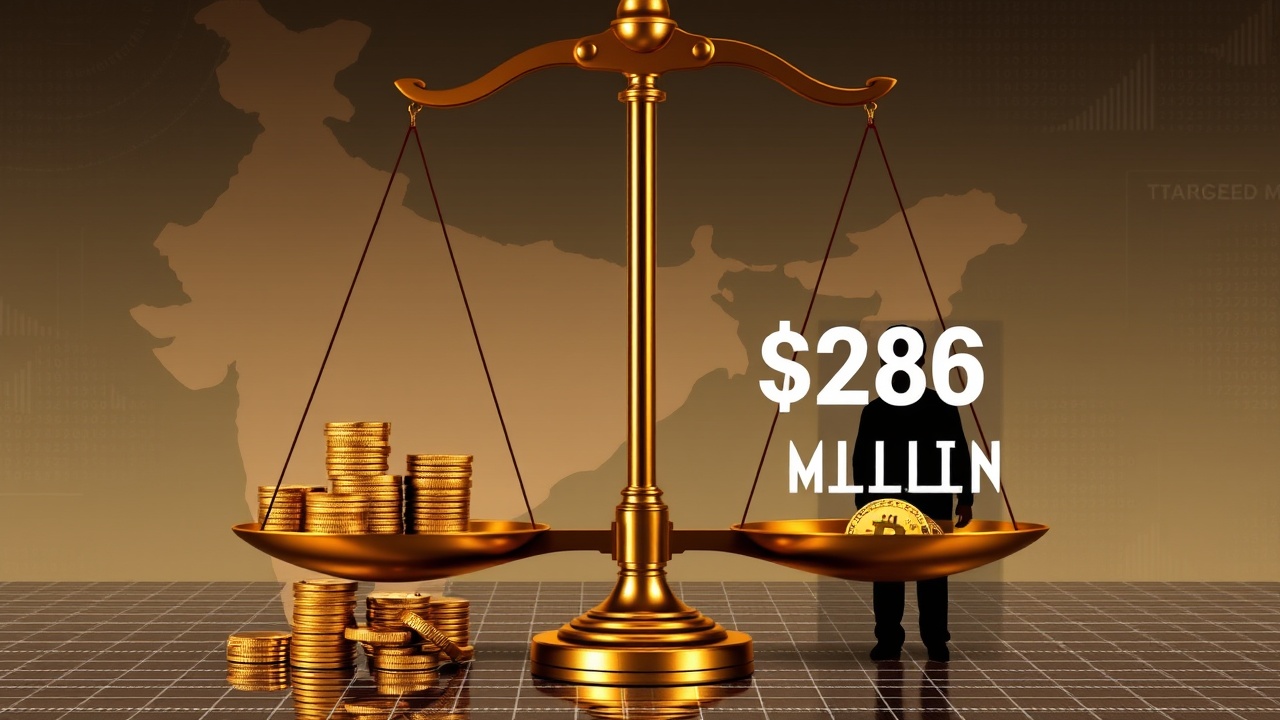Crackdown on Financial Fraud
In a significant crackdown on financial fraud, India’s Enforcement Directorate (ED) has recently confiscated cryptocurrencies valued at $286 million, stemming from an investigation into anti-money laundering violations. This move coincides with the arrest of Pavel Prozorov, who is allegedly the ringleader of the notorious OctaFX Ponzi scheme, which has defrauded investors across various countries.
Arrest and Investigation
Spanish law enforcement apprehended Prozorov, highlighting his involvement in cybercriminal activities that spanned several nations, as indicated by a statement from the ED. As part of the inquiry conducted under the Prevention of Money Laundering Act, authorities have executed a provisional order to freeze Prozorov’s substantial cryptocurrency assets as investigations into the illicit foreign exchange trading platform OctaFX continue.
Impact on Investors
The OctaFX platform is believed to have swindled approximately $225 million from Indian investors between July 2022 and April 2023. It has been reported that the operation raked in an estimated $96 million in profit from various countries from its inception in 2019 through 2024. The ED’s exploration revealed that the OctaFX network was meticulously structured to evade regulatory scrutiny and effectively obscure the routing of illicit funds across diverse jurisdictions.
Operational Structure
Entities registered in the British Virgin Islands managed marketing operations, while Spanish individuals and entities provided server hosting and back-office functions. Moreover, payment processing was overseen by firms in Estonia, technical support was supplied by Georgian operations, and a Cyprus-based firm acted as the holding company overseeing Indian activities. Additionally, channels established in Dubai enabled oversight of operations by Russian promoters, and entities in Singapore assisted in exporting non-existent services to facilitate money laundering abroad.
Illicit Profits and Money Laundering
As OctaFX presented itself as a legitimate online trading platform for currencies, commodities, and cryptocurrencies, it operated without the requisite permission from the Reserve Bank of India. Overall, it is estimated that the total illicit profits generated in India may surpass $600 million, with a substantial segment of this amount being transferred out of the country through fictitious software imports and R&D service claims.
Funds typically trickled down to entities controlled by Prozorov in several locations, including Spain, Estonia, Russia, Hong Kong, Singapore, the UAE, and the UK. The scheme employed UPI payment systems and domestic bank transfers to gather investments, later routing them through fraudulent Indian entities and individual accounts before dispersing across various mule accounts. Some of these laundered funds were reintroduced into India as foreign direct investment, enabling a convoluted flow that disguised the money’s illicit origins.
Conclusion
In total, the ED has immobilized assets amounting to $321 million in connection with this case, which includes not only cryptocurrency but also various properties and a luxury yacht in Spain owned by Prozorov. This operation marks one of India’s most prominent enforcement actions regarding cryptocurrencies in the ongoing battle against money laundering.




